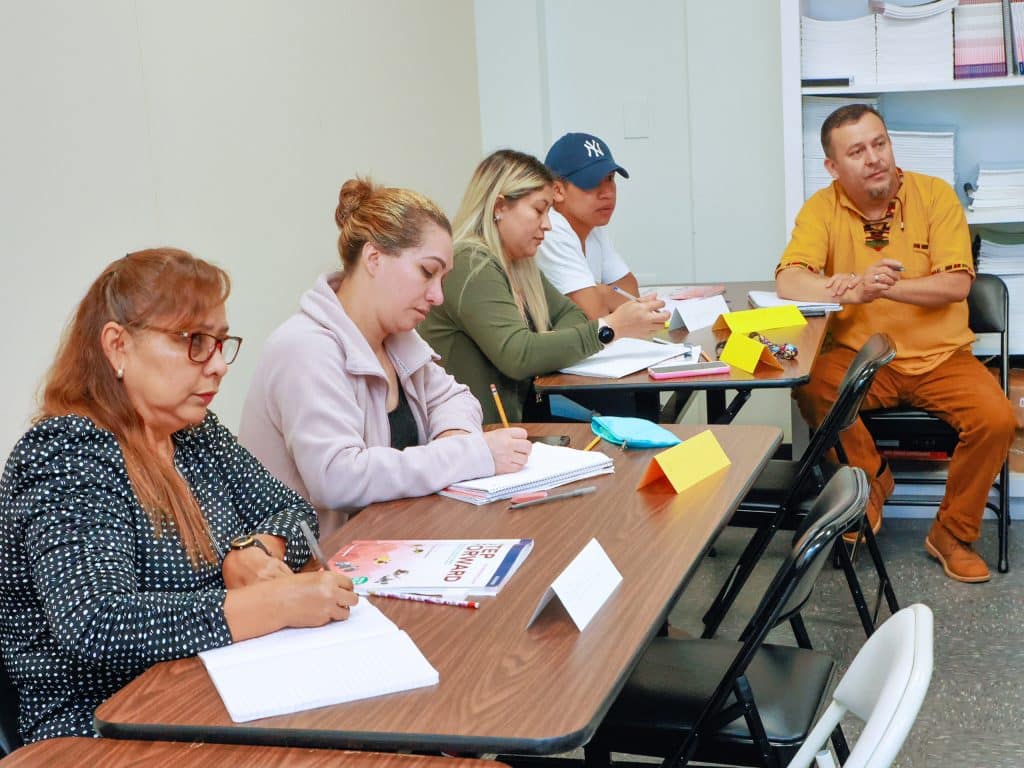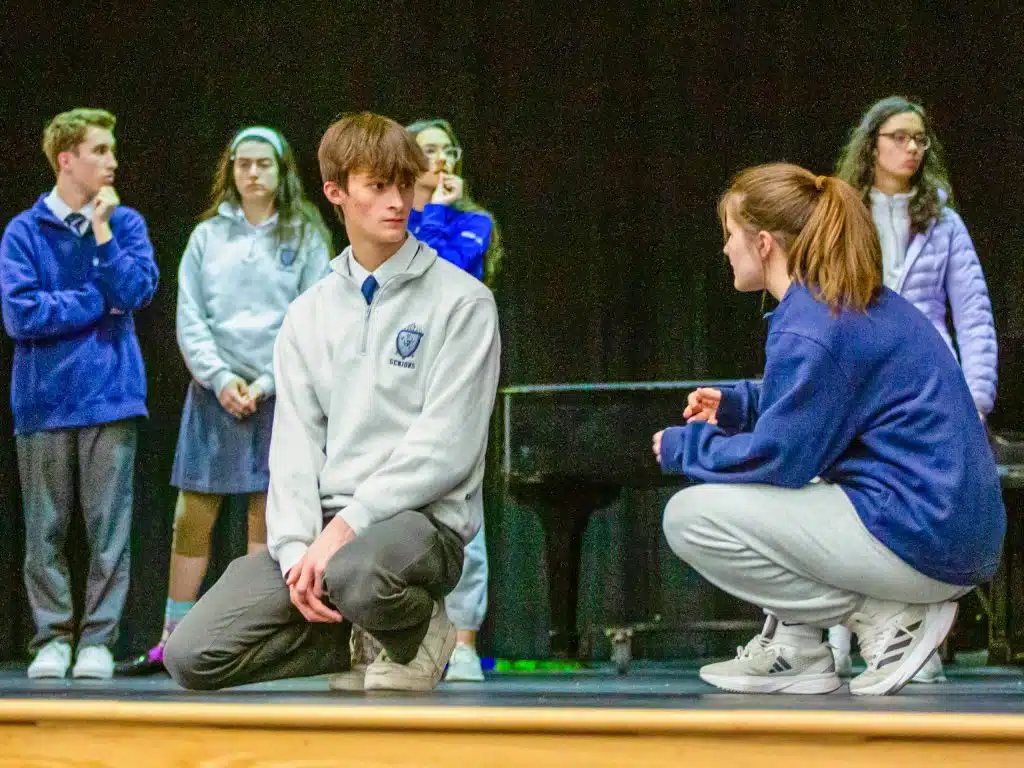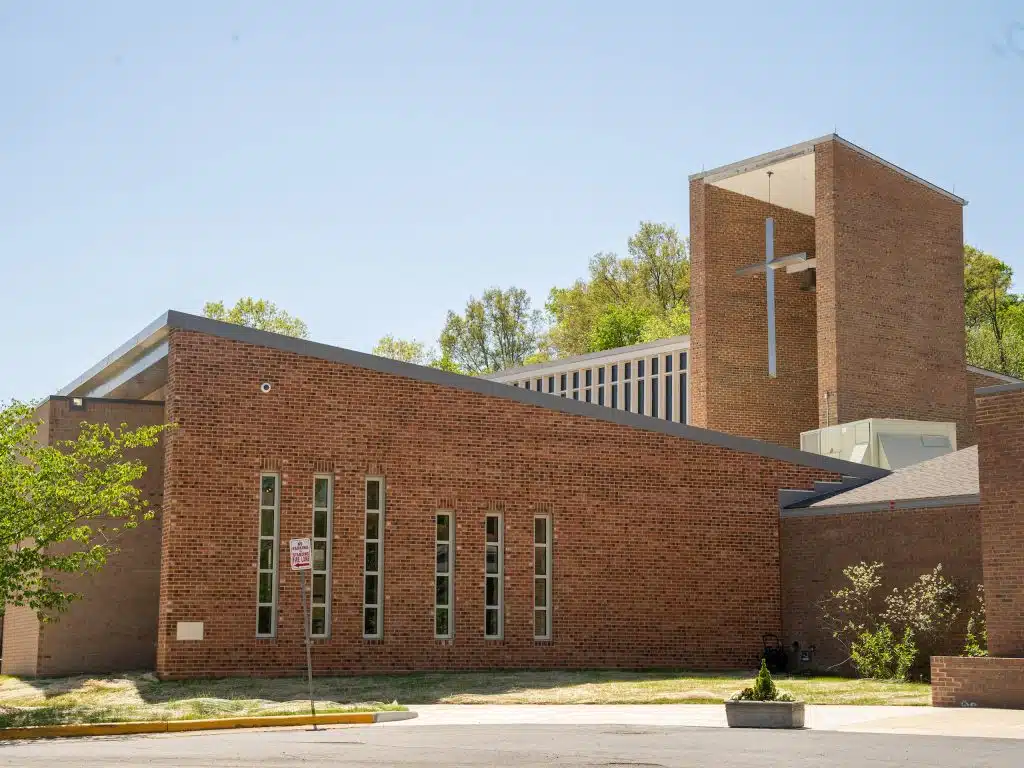Corinne Monogue, director of the diocesan Office of Multicultural Ministries, was adopted by a German immigrant couple the day she was born. In an age of closed adoptions, her birth mother, an unwed teenager, had been put to sleep during labor. It would take her 30 years to discover whether she had given birth to a girl or boy, where her child lived and whether she was happy and healthy. But during those years, Monogue, who grew up in Portland, Ore., was less anxious to learn the fate of her mother.
Monogue said that she and her
adopted sister always felt cherished by the “stern but loving” older couple who had experienced multiple misfortunes in their efforts to conceive. They explained early on that the girls were adopted, but all they knew of the girls’ histories was that Monogue was of Middle Eastern descent and her sister, Scandinavian. That, however, was not the most important knowledge they imparted.
“They told us that we were always wanted, that we were always designed to have life, and that we were where God wanted us to be,” said Monogue. “They told us that we were the greatest gifts that God could have given to them, that we were born for them.”
It was only during moody teenage fits that Monogue imagined her birth parents were a king and queen in a foreign land. She thought that if she lived with them, she’d be immune to punishment. Or sometimes she fantasized that her birth parents were both in jail and that she was an orphan. But her adoptive parents would remind her that God had put her in middle class America “with no fame and no crime (in her background).” Once the fight or misunderstanding subsided, she remembered how much she loved the man and woman who raised her.
It was during this time that she met her future husband in math class by “divine providence.” Despite attending the same school and parish, they had never seen each other before. Due to their “shared faith, values and vocation,” the romance continued into college.
After Monogue’s husband received his commission from the Air Force, the high school sweethearts married and moved every one to two years for the next 15 years. They made their home everywhere from California to Pennsylvania. Each time, they established themselves in their local Catholic community. Monogue found herself “always welcome at a Catholic school or other Catholic institution” when she needed employment. With each move, she met people with “different heritages and histories,” so she learned “how to make quick (but meaningful) relationships” – a skill that would ready her for her eventual role as the director of the Office of Multicultural Ministries.
“You never know when you’re in the midst of something how the Holy Spirit is going to move and prepare you for something,” said Monogue.
But her start with the Diocese of Arlington was still more than 10 years away when she gave birth to her first child. Less than a year later, she received a call from her adoptive mother. Her birth mother had contacted the law firm in charge of her adoption and wanted to get in touch with her. Shortly after Monogue gave her permission to be contacted, her birth mother called and gave her the details surrounding her birth.
Monogue’s birth mother was a white American high school girl when she met a Lebanese college student, during an era when interracial and interethnic dating was discouraged.
“But because she was forbidden to see him, she saw him even more,” said Monogue.
When she became pregnant, she withdrew from school and was sent to a home for unwed, pregnant mothers, as part of her Catholic Charities adoption plan. After giving birth, she returned home to complete high school “with no closure.” When Monogue’s birth mother reunited with her boyfriend, she told him that she had aborted their child. A couple months after getting back together, they broke up.
Not long after starting their phone relationship, Monogue and her birth mother met in person. One of the first things Monogue did was hug her birth mother and thank her for giving her life. Then, with Monogue’s permission, her birth mother tracked down her birth father. After years of no contact, she called him and delivered the news that she hadn’t aborted their child. Monogue’s birth father was “ecstatic,” saying he had felt “a sense of great loss” for decades because he hadn’t been a part of the decision. After that, Monogue and her birth father began talking.
She said that she approached the relationship with hesitation because her birth parents were strangers, and she already had parental figures in her life. Monogue also felt protective of her young daughter. Yet she gradually let down her guard.
“At one point, my birth father told me, ‘I am so grateful that you’ve used this opportunity to let us get in touch with each other,'” Monogue said. “‘I know you already have a father, but could you use a friend for the rest of your life?’ I told him, ‘Yes, I could always use another friend.'”
As Monogue’s relationship with her birth father grew, her relationship with her birth mother “went downhill.”
When Monogue got together with her birth parents in Oregon, where they both still lived, they had their picture taken. Her birth father printed, framed and mailed the photo to Monogue and her birth mother. The next time she spoke to her birth mother, Monogue asked if she had received her copy. To Monogue’s disappointment, her birth mother said she had but would never display it. She then made a few “derogatory remarks” about her “illegitimate child and ex-boyfriend” that caused Monogue to cut off all contact.
“My adoptive parents never made me feel that way,” said Monogue, whose adoptive father and mother died in 2004 and 2008, respectively. “They always made me feel loved.”
Meanwhile, her relationship with her birth father “blossomed into a paternal relationship.”
“My son and daughter call him their grandfather, and we go on family vacations together,” she said. “He’s introduced me to all my cousins, aunts, uncles, everyone. The family joke is that the oldest member of the family is the newest.”
When Monogue’s daughter, a trained ballerina, was offered an opportunity to dance professionally in Oregon, she said that she and her husband felt comfortable letting her leave home.
“I knew that (my birth father’s family) cherished and adored my daughter,” she said.
The whole experience has pushed Monogue to learn more about her Lebanese heritage. It also has made her family “extremely pro-life.”
“We believe that life starts at the moment of conception and lasts through natural death,” said Monogue. “My children would not exist if my birth mother had aborted me.”
Monogue’s personal story also has influenced her love for her job, where she works with Catholic communities from around the world. She ensures that immigrant groups from Brazil to Cameroon integrate into American life without sacrificing their traditions and that they are never ashamed of their culture.
“Because of who I am … I realize that cultural identity, history and heritage all play a part in who we become,” said Monogue. “I see Christ in every person I encounter, despite differences in language, food and dress. It doesn’t matter (who you are). You have gifts given to you by God, and those are gifts meant to be shared.”
Stoddard can be reached at [email protected].
Find out more
To learn more about the diocesan Catholic Charities Center for Pregnancy and Adoption Services, go to bit.ly/ccadoption. To learn more about the diocesan Office for Multicultural Ministries, go to arlingtondiocese.org/multicultural.


